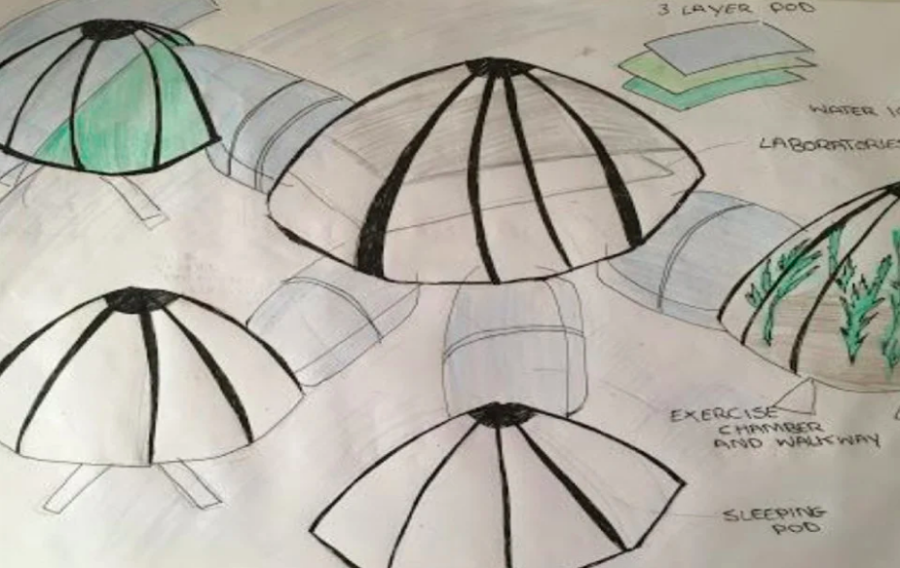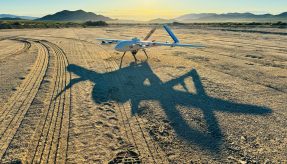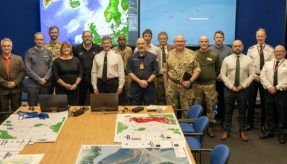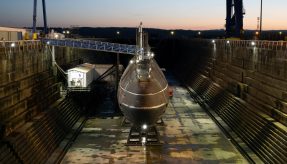
Science, technology, engineering and maths (STEM) ambassadors from Dstl (Defence Science and Technology Laboratory) are encouraging the next generation of space engineers with 2 new employer-led challenges for students at the university technical college (UTC) in Portsmouth.
Students from Year 12 completed the challenges during the height of lockdown, from April to July 2020. They worked individually and in small groups to research, design and present solutions to problems devised by the scientists from Dstl’s Space group located on Portsdown Hill.
Challenge 1 was a space debris mission, with students designing a craft to rendezvous with, capture and safely de-orbit the rogue satellite Envisat. The growing amount of debris in space poses a risk to orbiting satellites which provide vital services such as GPS communications. Challenge 2 was a moon colony challenge, to design a moon base on Europa or Callisto – overcoming problems like ice and radiation. The students had regular feedback from the Dstl team, even though they were not able to meet in person.
In order to develop the students’ skills and employability, challenges were designed to replicate work at Dstl, the science inside UK defence and security. Students took on specific roles and were required to thoroughly research, illustrate and present their solutions – including costs and mission timelines. Challenges gave students an understanding of systems engineering and an opportunity to pursue their own, in-depth research, which they really enjoyed.
Rebecca Couchman-Crook, Space Mission Scientist who led the project with assistance from Jordan Lowrey, Max Faulkner and Simon George, said: “This challenge was a fantastic chance for us to engage with the students and show them why a career in STEM is a great opportunity and that Dstl as an awesome place to work. A few of the students produced excellent work that really impressed us. And we must have inspired them too, as one of them is very keen to join us as an apprentice after college.”
UTC Portsmouth Assistant Principal, Alex Blandford, said: “As one of our Primary Employer Partners, we were delighted when Dstl was able to adapt their Space Debris Challenge to make it accessible to our students as they continued their studies during lockdown. It gave them the opportunity to work on a brief that they would not normally come across in their day to day curriculum but one that has provided invaluable feedback and insights into the world of space engineering. Their career aspirations have increased greatly because of this experience and we cannot thank Dstl enough.”
Jaime Williamson, Early Careers Lead at Dstl, said: “It was amazing that Rebecca and the team were able to adapt to remote working with their students. The UTC in Portsmouth relies on employers to ensure that the students gain relevant skills to make them employable in the local economy. The students really appreciated the opportunity to get this Dstl project on their CV and the teachers really valued Dstl’s support to engage the students while they were in lockdown.”
Dstl’s engagement with UTC Portsmouth is continuing, and Year 13 students embarked on the very popular Dstl Sentry Challenge in September, devised and delivered by STEM Ambassadors from Dstl’s Platform Systems Division.
If you would like to join our community and read more articles like this then please click here







